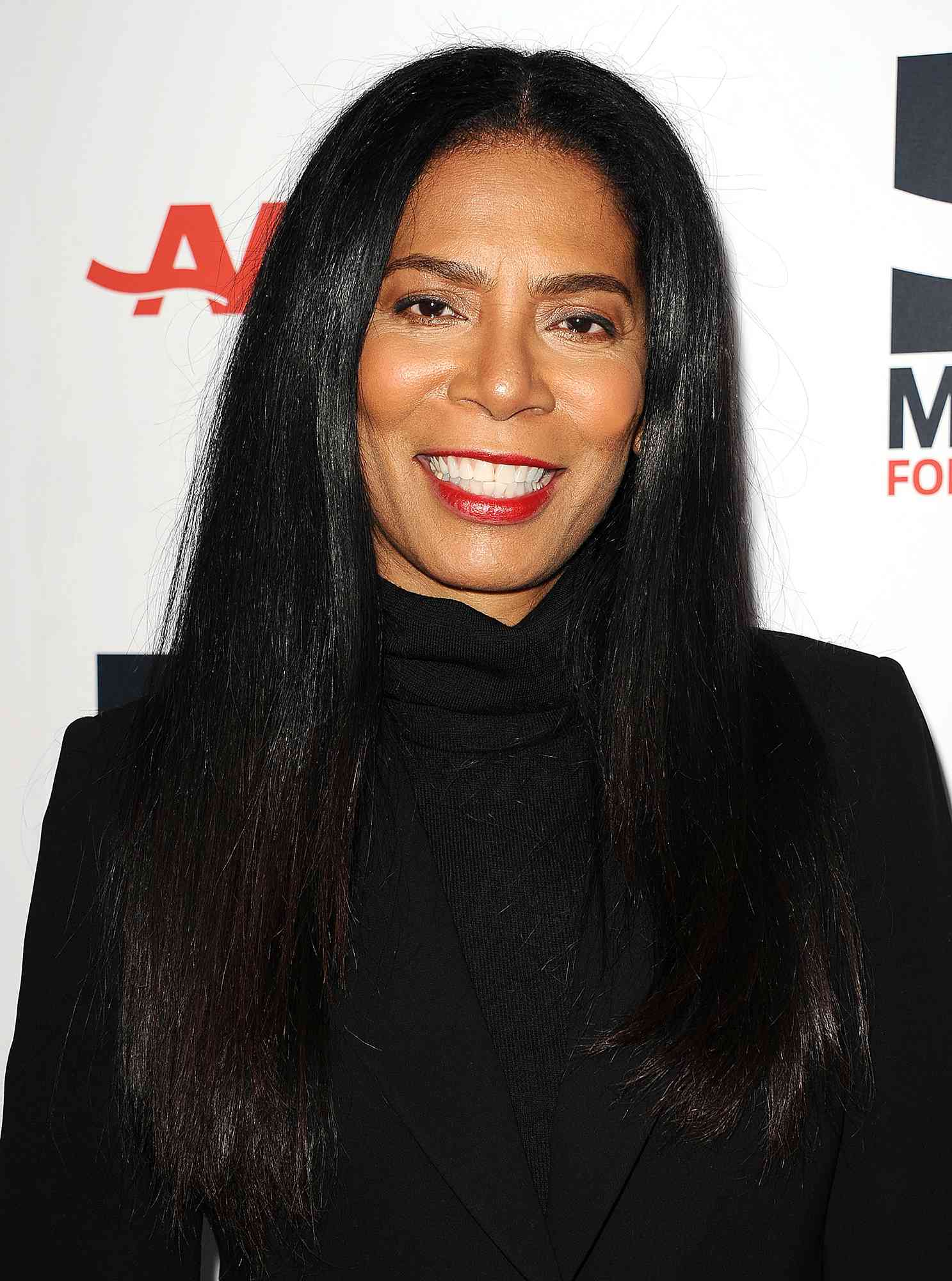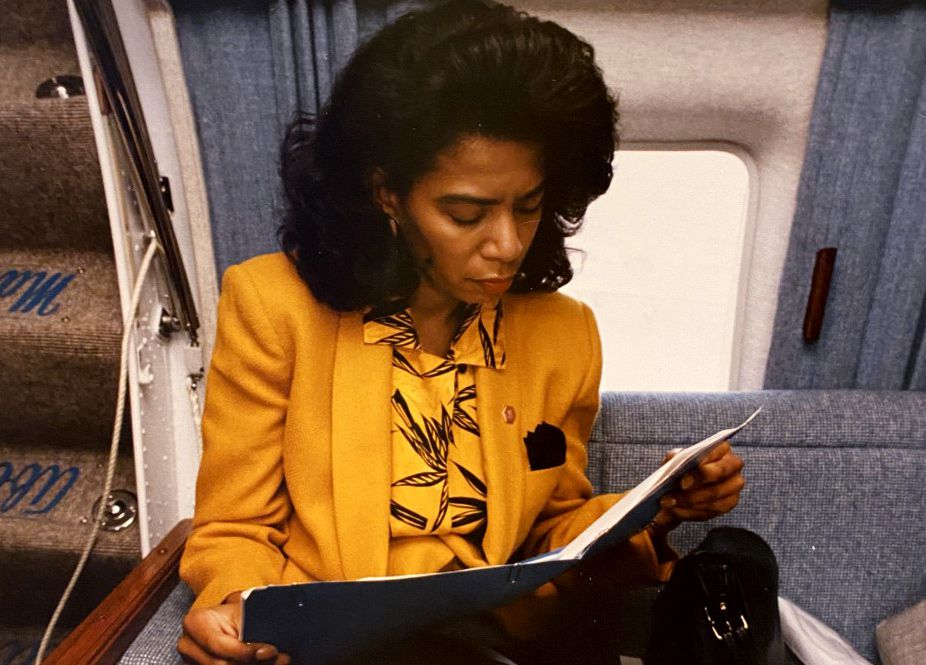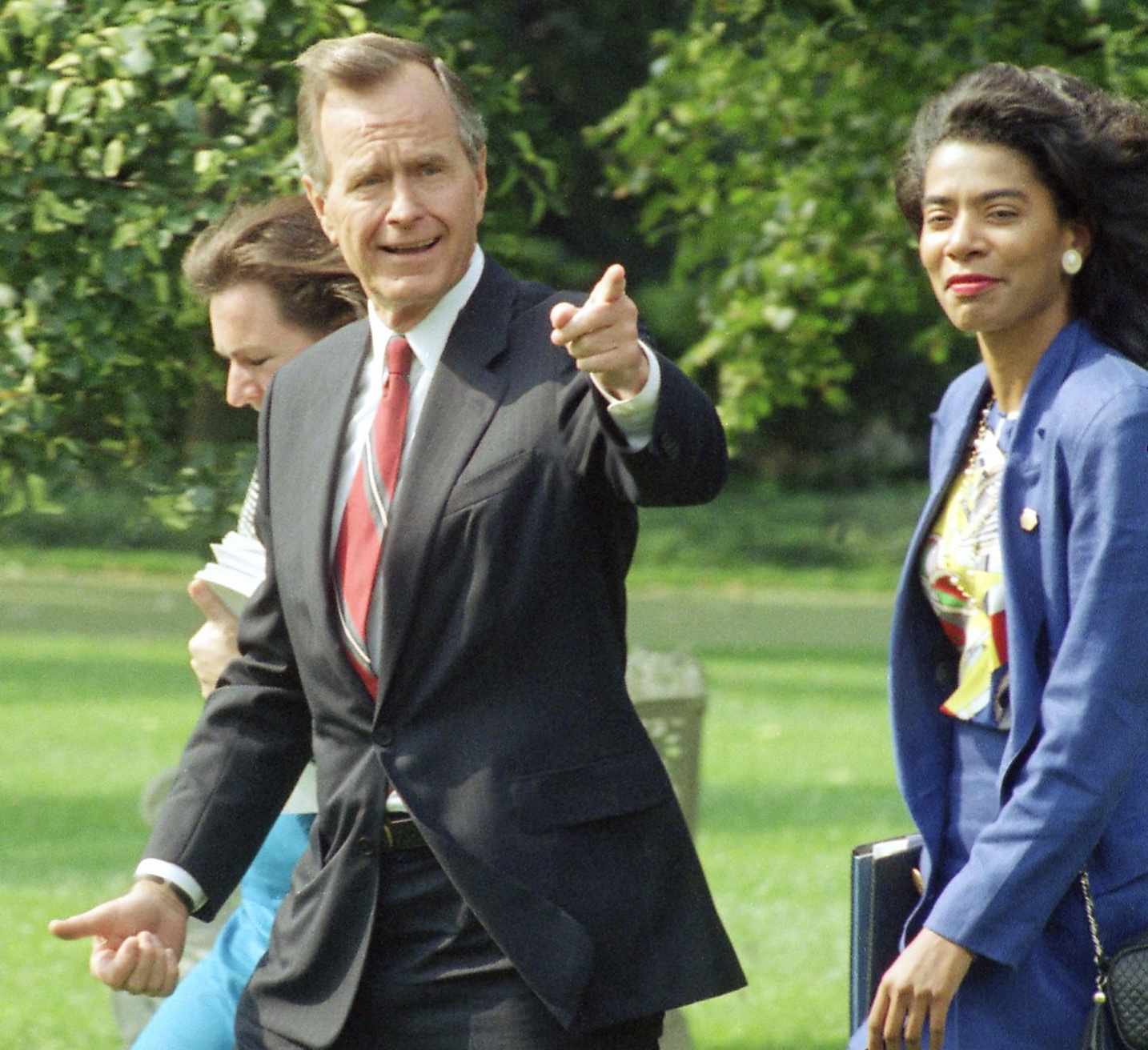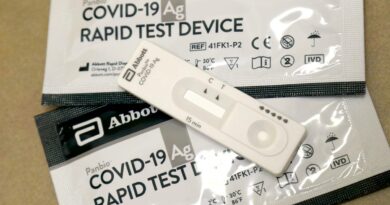Meet the Real Olivia Pope, Who Was Also the First Black Woman to Hold a White House Press Briefing
It's a heavy thing to deliver a White House press briefing — alone up at the podium before the assembled reporters, who are armed with their rapid-fire questions and backed by national TV cameras.
Being a barrier-breaker in that much scrutinized role would be heavier even still. For most.
Judy Smith, deputy press secretary under President George H. W. Bush and the first Black woman to deliver a White House press briefing, says it wasn't until weeks after she came to the White House in 1991 that she began to fully grasp the ramifications of her being in her role amid Washington, D.C.'s sameness, sartorial or otherwise.
"Probably after about two weeks there, I looked around and started taking in how everyone was dressed," Smith, 62, tells PEOPLE. "And I remember asking Marlin [Fitzwater, then the White House press secretary], 'Is there an official White House uniform or something?' All I could see what this sea of black, gray and navy blue."
The White House did not have an official — or unofficial — uniform, though the lack of diversity was startling to Smith, she says.
She remembers telling Fitzwater: "I'm going to be sporting my best red blazer. Tomorrow."
A 1991 press briefing by Smith marked the first-ever delivered by a Black woman. Wearing a bold white blazer, oversized earrings and a strand of pearls, she was seen as injecting a sense of personality into the role while still speaking straightforwardly to the press.
"For me, even just in dress, I wanted to be clear about how I showed up in the world and presented myself," Smith says. "And that's kind of different for every woman or every person. It's good to be deliberate about it, but also authentic to you."
("I sported my red blazer. I had this great blue blazer," she notes. "I did me.")
Authentic, for Smith, meant "hunkering down and doing the work" but also ensuring she spoke honestly to reporters and her colleagues.
Her time in the White House was historic for other reasons, inspiring the first primetime network drama with a Black female lead — ABC's Scandal, starring Kerry Washington as a crisis manager and White House whisperer — in nearly 40 years.
Though she wasn't a household name during her time in the first Bush administration, Smith's subsequent work as a crisis communications expert was fictionalized in Scandal, putting her life and career in the spotlight.
After her stay in the White House, Smith took on a string of high-profile clients including Monica Lewinsky and Chandra Levy's family; and she created her crisis management agency, Smith and Company, which represents Fortune 500 companies and celebrities including Angelina Jolie.
Smith says a lot of Scandal, which ended in 2018, was accurate: She does talk as fast as the characters and she does indeed have an affinity for the color white, a hue often seen in Olivia Pope's many designer coats.
And while she very much did not have an extramarital relationship with the late President Bush, it's something he was fond of joking about when Scandal was airing.
"He actually invited me down to his home in Texas and gave a reception for me," Smith says. "He was so proud. And he got up and gave remarks and said, 'I've been trying to force Judy to tell the truth about this relationship for years.' "
The line got a lot of laughs — and wasn't the first time Bush made the joke.
"When the show starting coming to fruition, I called him to let him know what was going on," she says. "He called me back and left a message, joking, 'I love you, you broke up with me, this is the former president of the free world so you better call me back.' "
Ever discerning, Smith told her former boss he needed to better control his messaging: "I called him back and said, 'You cannot joke like that,' and he said, 'No, I've got young people in my office. They said it'd be good for my rep."
Smith was unmoved: "I sent him talking points and said, 'You stick to these or else I'm gonna call your boss.' " ("We both knew it was Mrs. Bush that I was talking about," she adds.)
Though Scandal highlighted the work Smith took on after she left the White House, her role as the first Black woman to assume the public face of the presidency helped pave the way for female White House press secretaries in the years since, most notably under Donald Trump and now Joe Biden, whose senior press aides are all women.
Smith applauds the decision to include a more diverse group in both the White House communications staff and in organizations as a whole.
"I'm a big believer that you get the best results when you have a diverse team, different perspectives and viewpoints … it's helpful to have people who don't think exactly the way you do and women have always been very strong in communications field," she says. "And really, this is something that could have taken place earlier. It's not as if there's been a shortage of women in communications."
Still, Smith says that the modern-day political landscape is lightyears different from when she was at the White House.
Press secretaries today have an even bigger megaphone, she says, thanks to the viral spread of information on social media. That means more eyeballs on the person doing the talking, too.
"Some of the modern-day press secretaries have become celebrities in their own right and have their own brand, and I think that's obviously a big difference than what it used to be," Smith says. "The Trump administration has also had an unorthodox relationship with the media — combined with the fact that this is a more divisive time, it's probably spurred on more interest in the podium."
Her advice to those joining the White House press team (or any forward-facing role, she adds)? Speak from the heart.
"I always give straightforward, right-to-the-point, honest advice, " Smith says. "It doesn't matter if you're talking to an executive or John who picks up your trash, or the president of the United States. People who are in power don't often receive honest advice and it's something they tend to respect."
Source: Read Full Article




